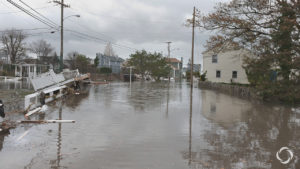Refugees volunteering in the wake of hurricane Harvey
Refugees have been volunteering in droves since Hurricane Harvey laid waste to large tracts of the south western United States.
Syrian refuge Amina and her family settled in Texas last year and had planned a celebration on the anniversary of their arrival. Instead, she was visiting the home of her elderly neighbours in Houston to make sure they were safe and had enough provisions.
Texas takes in the second-highest number of refugees of any state and many settle in Houston.
 In 2015, Governor Greg Abbott tried to block Syrian refugees from entering the state, and when his plan was thwarted he withdrew from the US’ national resettlement program.
In 2015, Governor Greg Abbott tried to block Syrian refugees from entering the state, and when his plan was thwarted he withdrew from the US’ national resettlement program.
However, the US Department of Immigration still resettles people in Texas without the state government’s help.
In spite of this politically hostile environment, refugees in Houston say they feel connected to their new home and are looking for ways to support their community in the wake of the storm that has shattered much of the city.
“I am very sad, because I love Houston and I love all the people here, the people here are so nice, I just hope everything will be OK,” Amina told a local newspaper.
A former English teacher in Syria, Amina now works as a tutor at a local not for profit agency helping refugees.
Her husband was a banker in Syria but now works as a handyman and is offering his services for free to victims of the storm.
Local agencies say the desire to give back to the country that took them in is common among refugees in Houston.
“These people welcome us here in the United States and these people accept us here in the United States, and we feel proud that we helped someone in return,” said Nisar Momand, a former refugee who now lives in Houston.
Mr Momand and other volunteers from the Afghan Cultural Centre, a community group where he serves on the board of directors, helped firefighters whose truck was stuck in the street use their hose so they could put out a house fire.
The group had about 20 volunteers who distributed supplies, helped people get their belongings to higher areas and moved families to safe places.
During the storm, the group’s focus was on helping anyone in the community who needed it.
Mr Momand said Houston was welcoming to him and his family when they came to the US from Afghanistan, and now he wants to help whoever he can.
Another volunteers at the Afghan Cultural Center was Mohammad Moussa.
He spent the days after storm checking in with the families they serve and his co-workers, as well as with doing what he could in the wider neighbourhood.
“As humans, we have to help each other,” Mr Moussa said.
As a Syrian refugee, he is used to power outages but he said he didn’t expect to experience it in the US.
All of the former refugees Mr Moussa contacted were safe, but some had damage to their homes or cars and had to leave.
Some of the new arrivals were surprised at how bad things were, he said, even though local services tried to prepare them.
“They didn’t assume it was going to be this hard,” Ms Moussa said.
Laurie Nowell
AMES Australia Senior Journalist












